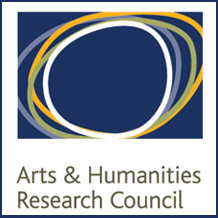Genealogies of Knowledge: The Evolution and Contestation of Concepts across Time and Space
 Project Award Announcement
Project Award Announcement
The Centre for Translation and Intercultural Studies (CTIS) at the University of Manchester has recently been awarded a large Research Grant by the Arts and Humanities Research Council (AHRC, standard route). From 31 March 2016, CTIS members Professor Mona Baker (Principal Investigator) and Dr Luis Pérez-González (Co-investigator) will work with Professor Peter Pormann (Lead Co-investigator, Classics and Graeco-Arabic Studies at the University of Manchester) and Dr Saturnino Luz (Senior Research Associate, University of Edinburgh) on a 4-year project that will investigate two sets of interrelated issues: (1) the historical evolution and transformation through translation of two constellations of key concepts in political and scientific thought that can often be traced back to the ancient Greek world, focusing on three historical lingua francas (Arabic, Latin and English) and seminal moments of change in the reception and reproduction of translated texts and their meanings by subsequent readerships; and (2) the ways and means by which civil society actors involved in radical democratic groups and counter-hegemonic globalisation movements contest and redefine the meanings of such cultural concepts today.
The questions pertaining to the first set of issues are as follows:
- How do concepts about the body politic evolve and acquire different meanings and nuances within and across lingua cultures over time, and what role does translation play in this process? Specific concepts to be examined include those currently expressed by the following lexical items in English: polis, polity, democracy, civil society, citizenship, nation, state, natural law, human rights, equality.
- How do key concepts that underpin scientific, expert discourse (including medical discourse as a case in point) similarly evolve within and across cultures over time, and how are they mediated in translation? Specific concepts to be examined include those currently expressed by the following lexical items in English: experiment, observation, evidence, proof, episteme, truth, falsehood, aetiology, causation, justification, fact, validity, expertise.
Research pertaining to the second line of enquiry will be driven by the following questions:
- How are civil society organisations currently challenging and redefining established meanings and interpretations of key concepts relating to the body politic and to scientific, expert discourse, as radical-democratic projects supersede traditional models of democracy and rationality and their capacity to confer representative authority and canonise knowledge?
- How does the role of English as a global language contribute to the ongoing reinterpretation of key concepts underpinning established definitions of the body politic by participatory movements that advocate non-state-centred models of democracy?
- How are civil society organisations currently contesting earlier interpretations of key concepts that underpin traditional scientific, expert discourse, such as evidence, expertise and truth? To what extent can the ongoing redefinition of such key cultural concepts be accounted for in terms of resistance to the penetration of scientific activities by capitalist ideology?
For both strands of analysis, the study will (1) build large, diverse electronic corpora of Greek, Arabic, Latin and English; and (2) develop a range of open-source tools for corpus analysis and visualisation that harness the power of the computer to process, compare and visualise patterns across these very large textual repositories.
The project team will be supported by an Advisory Board consisting of Manchester-based academics drawn from various subject areas: Dr Guyda Armstrong (Italian Studies), Professor David Langslow (Classics), Dr Maeve Olohan (Centre for Translation and Intercultural Studies), Dr Matthew Philpotts (German Studies), Professor Myriam Salama-Carr (Centre for Translation and Intercultural Studies), Professor Jacqueline Stacey (English and American Studies) and Dr Andreja Zevnik (International Politics).
Project-funded Employment Opportunities
The following positions will become available under this award, at different points during the project’s life:
- PhD Studentship in Corpus-based TranslationStudies and History of Knowledge Transfer in the 19th/20th Century (starting in September 2016, to be advertised shortly)
- 2 Postdoctoral Research Associates (starting in September 2016 and January 2017, to be advertised in early 2016).
Project Updates
If you would like to receive updates on the project activities and events, please contactLuis.Perez-Gonzalez@manchester.ac.uk (quoting ‘Genealogies mailing list’ as the e-mail subject).
Relevant announcements:
Research Councils UK: http://gtr.rcuk.ac.uk/projects?ref=AH/M010007/1
Times Higher Education: https://www.timeshighereducation.com/news/grant-winners-12-november-2015